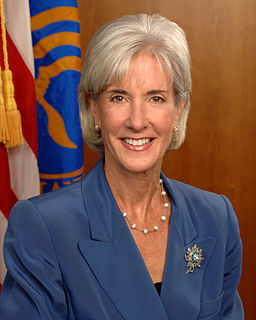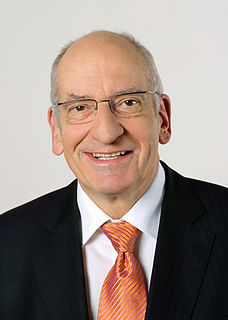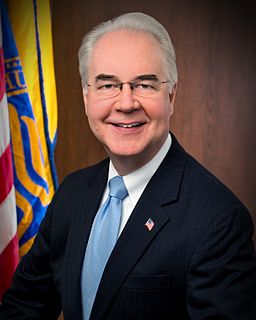A Quote by Kathleen Sebelius
The way the law is written, people who are under 250 percent of poverty, who have a marketplace plan, also are eligible to have some of their deductible and co-pay expenses paid through cost-sharing. Insurance companies basically front the money and are reimbursed by the federal government, by HHS.
Related Quotes
People in the individual marketplace should have more options. The plan that we - the discussion draft that we have out, actually opens up for people who are zero percent to 100 percent of the federal poverty level, not eligible for Medicaid, would open up the opportunity for them to purchase insurance with help from the federal government.
Republican House members, including Tom Price, when he was still in the Republican House, sued HHS, suggesting that payment to insurance companies for cost-sharing exceeded the authority of HHS. That case was basically withdrawn when President Trump was elected, in hopes that the Affordable Care Act would be repealed - but we're back to the law.
If you look at the expenses of a great pharmaceutical company, they pay between about 10 to 15 percent of their expenses for research, but they use 30 to 40 percent of their incomes for marketing and promotion. It is not completely wrong that they spend so much, but it is not correct to say that there is a direct connection between the price of drugs and the cost of research. It could be more between the cost of marketing and the cost of the drugs.
We ought to follow through on an idea that was first proposed by President Clinton to allow people over the age of 55 who are not eligible for Medicare into the Medicare system, at cost, and below cost for those who can't afford it. That takes care of a significant number of the people who don't have health insurance.
Government is taking 40 percent of the GDP. And that's at the state, local and federal level. President Obama has taken government spending at the federal level from 20 percent to 25 percent. Look, at some point, you cease being a free economy, and you become a government economy. And we've got to stop that.
One of the biggest reasons for higher medical costs is that somebody else is paying those costs, whether an insurance company or the government. What is the politicians' answer? To have more costs paid by insurance companies and the government. ... [H]aving someone else pay for medical care virtually guarantees that a lot more of it will be used. Nothing would lower costs more than having each patient pay those costs. And nothing is less likely to happen.
We've got people that are paying premiums of $1,000 a month out there, and then they've got a deductible of $1,000. If you're making $40,000, $50,000, $60,000 out there and you've got an Obamacare plan, by and large you've got an insurance card, but you don't have any care because you can't afford the deductible.
We need a wealth tax that on a one-time basis is going to take back at least some small fraction of the great windfall that the upper 1 percent, or 5 percent and pay down the government debt, pay back the federal debt because we can't put this on the next generation or they're going to be buried paying taxes.





























